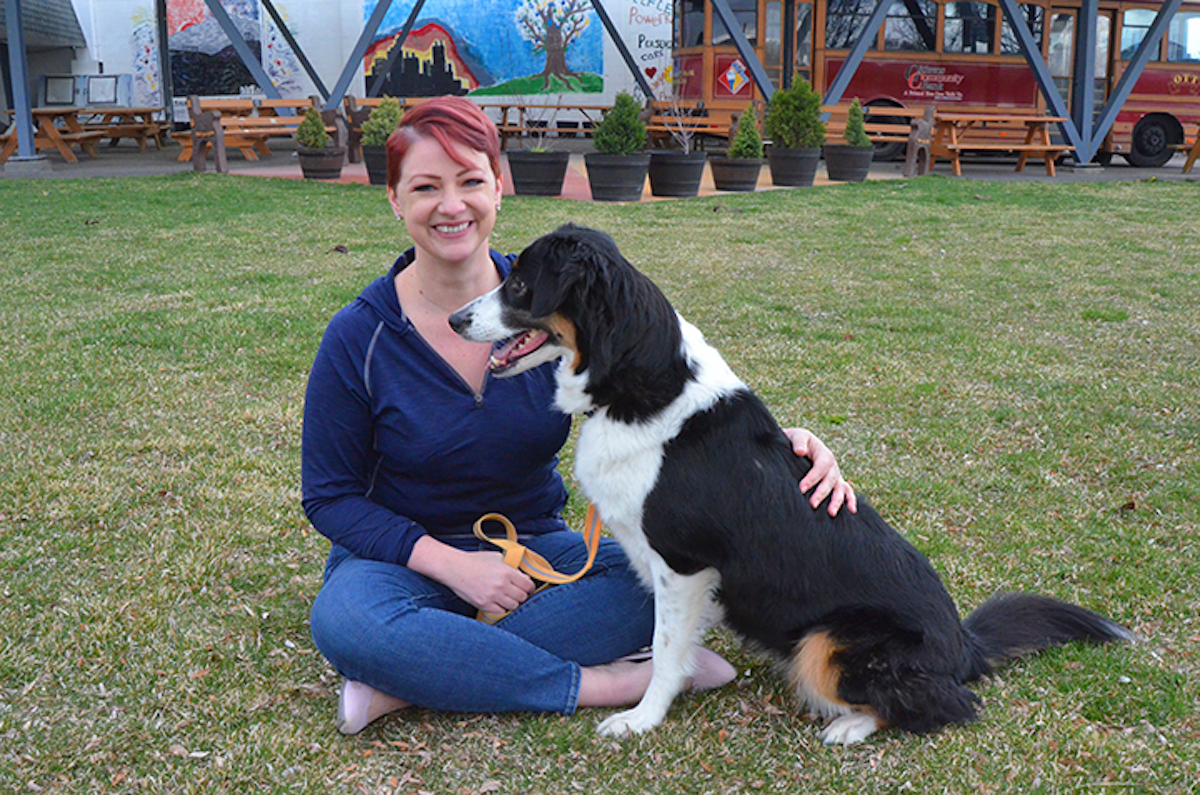Idaho State University Professor Leslie Stewart invited to share animal-assisted intervention knowledge on national stage
June 10, 2019

Counseling professor found passion for counseling in providing adaptive riding lessons
POCATELLO - Although it’s a topic professors have been teaching in counseling classes for several years at ISU, many people don’t realize the complexity of animal-assisted intervention as an effective addition to counseling and counselor education. Extensive skill and training are involved, for both the counselor and the potential therapy animal.
Leslie Stewart, associate professor of counseling, is making herself known nationally with accomplishments involving animal-assisted intervention. She was recently asked to share her knowledge and expertise on the topic of animal-assisted crisis response at a congressional panel on Capitol Hill, on behalf of Pet Partners, a in Washington D.C. Stewart has also paved the way for ISU, along with many other universities and organizations, to provide a certificate program for counseling and other health care professionals involved in animal-assisted intervention, both human and animal.
Animal-assisted intervention is unique compared to other styles of counseling. Because animals are involved, many additional variables are present. Since animals can't speak to express their feelings, it is the counselor's job to learn how to recognize not only the client's body language, but the animal’s as well. It is vital that both the animal assisting with a counseling session, and the client, are enjoying and benefiting from the interaction. This is especially important to discern when animals and clients are meeting for the first time. Therapy animals are not service animals, and are not emotional support animals, Stewart says.
“You can train animals to do many things, but you cannot train them to continually enjoy the interaction between both new and familiar individuals,” she said. “It is essential that they become socialized for many different settings and to have exceptional manners. It is crucial that they are more predictable than not, and are capable of reliably responding to handler commands. No different than humans, animals can have bad days as well.”
Although training for counselors in this field is relatively new, Stewart’s research has contributed to the development of specialized provider competency models for animal-assisted intervention that are now being implemented on a national scale.
Stewart’s curiosity for counseling and animal-assisted intervention sparked from her days as a horseback riding instructor. In providing adaptive riding lessons for children with a variety of physical and mental health challenges, she discovered a need for more qualified, vetted counselors and was interested in learning how to effectively incorporate therapy animals into treatment. Her original research on animal-assisted intervention competencies addresses the specialized training that counselors offering this style of counseling will need in order for themselves, their clients, and the animals to be safe and effective.
In 2016, the American Counseling Association officially adopted a core set of animal-assisted intervention provider competencies that stemmed directly from Stewart’s research. Now, the American Psychological Association is working closely with Stewart as a consultant, to develop their own set of provider competencies. Also, as part of an extensive collaboration between Stewart and Pet Partners there is now a tiered model of therapy animal handler competencies that are appropriate to multiple levels of handler professionalization: volunteer handlers, paraprofessional handlers, and licensed professional handlers. Pet Partners is a national organization that works to prepare, evaluate, and register therapy animal-handler teams to provide animal-assisted activities (i.e. hospital visits, senior care centers, school visits, literacy improvement programs) and animal assisted intervention (i.e. counseling veterans or other populations with PTSD, patients engaged in physical or occupational therapy, animal assisted education in schools, and those approaching end of life).
Stewart has found that animal-assisted intervention can be beneficial not only in counseling practice, but also in counselor education. At ISU, Stewart offers a certificate program for Animal Assisted Interventions in Counseling; it's a nine-credit certificate program consisting of three courses. These classes can be taken over one summer or spread out over multiple summers. Enrolled students as well as practicing professionals can take these courses that are offered both on campus and online. Today, ISU is now one of just a handful of institutions across the United States that offers an animal-assisted intervention training and certificate program. For more information about Stewart and this program, visit https://www.isu.edu/
Idaho State University, a Carnegie-classified doctoral high research activity university and teaching institution founded in 1901, attracts students from around the world to its Idaho campuses. At the main campus in Pocatello, and at locations in Meridian, Idaho Falls and Twin Falls, ISU has nine Colleges, a Graduate School and a Division of Health Sciences that together offer more than 250 certificate and degree programs. More than 12,000 students attend ISU. Idaho State University is the state's designated lead institution in health professions.
Categories:
